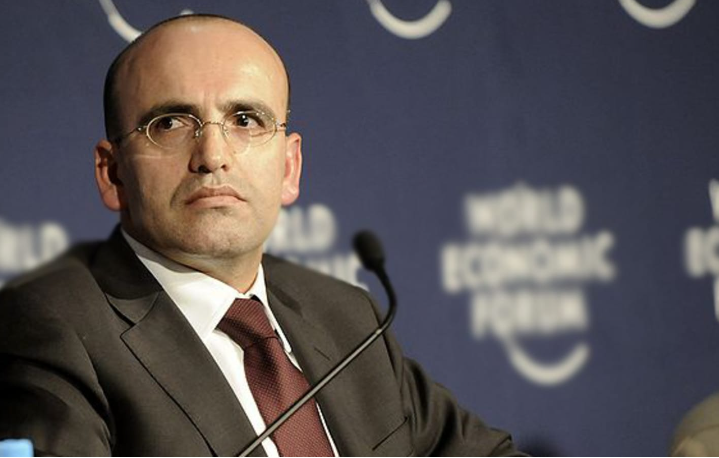Turkey’s economic administration is set to prioritize accelerating disinflation and advancing structural reforms in 2025, according to Treasury and Finance Minister Mehmet Şimşek. Speaking at an event organized by the Independent Industrialists and Businessmen’s Association (MÜSIAD) in Istanbul, Şimşek detailed global economic trends, Turkey’s disinflation efforts, and the progress of the economic program initiated in mid-2023.
Key Goals for 2025: Disinflation and Reform
“Disinflation has started,” Şimşek announced, emphasizing the government’s dual objectives for 2025: achieving a more perceptible reduction in inflation and expediting structural transformation. Turkey’s annual inflation rate dropped from approximately 75% in May 2024 to 44% in December, a promising development for the country’s economy.
The program’s ultimate aim, Şimşek reiterated, is “sustainable high growth and more equitable income distribution.”
Global Trends and Turkey’s Position
Şimşek highlighted several global trends that could impact Turkey’s economy, including:
- Stabilizing commodity prices and improved EU growth, benefiting Turkey as a strategic trading partner.
- Falling global inflation, offering short-term financial relief supportive of Turkey’s economic activity.
However, he cautioned against uncertainties tied to U.S. trade policies under its new administration and shifts in China’s export strategies.
“The global trade policy uncertainty index has reached its highest level in recent history,” Şimşek stated, warning of potential repercussions on Turkish exports due to changing tariffs and trade routes.
Export Advantages and Resilience
Turkey’s trade framework provides resilience amid global uncertainties. Around 62% of Turkish exports target 54 countries with free trade agreements, particularly within the EU and neighboring regions such as the Middle East and North Africa.
“Three-quarters of our exports are relatively more resistant to these trends,” Şimşek noted, citing Turkey’s strong logistics and industrial base as strategic assets.
Economic Program Progress
Şimşek highlighted significant progress under Turkey’s economic program:
- A substantial reduction in the current account deficit relative to GDP.
- Increased net reserves by over $100 billion.
- A significant rise in Turkish lira deposits, now accounting for 60% of total deposits.
“Compared to where we started, the Turkish economy is less fragile, and macro-financial stability is stronger,” he asserted.
Challenges and Resilience in 2024
MÜSIAD President Mahmut Asmalı acknowledged challenges faced by Turkey’s real sector in 2024, including limited financing access and declining turnover. Despite these hurdles, Turkey managed to grow exports modestly and sustain employment levels.
Asmalı also highlighted the importance of Turkey’s strengthened central bank reserves and reduced risk premium in combating inflation.
“The drop in annual inflation from 75% to 44% in 2024 shows a more promising outlook for this year,” he said.
Looking Ahead
As Turkey seeks to solidify its role as a critical player in the post-war reconstruction of Syria, its 2025 agenda will focus on maintaining economic resilience, reducing inflation, and leveraging its geographic and strategic advantages.
Šimšek remains optimistic about Turkey’s economic trajectory, citing continued efforts to bolster macro-financial stability and implement necessary reforms to ensure sustainable growth.
